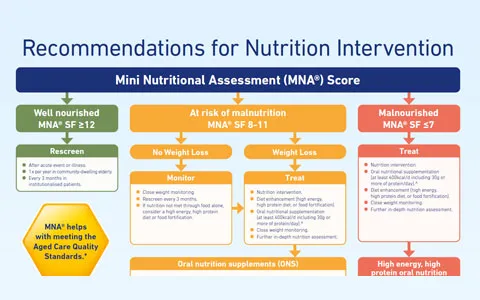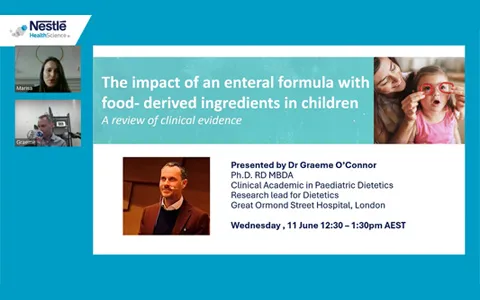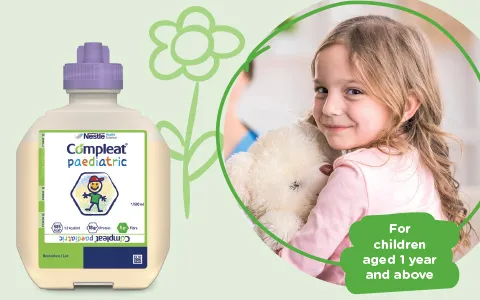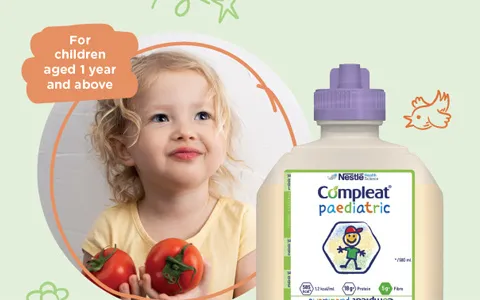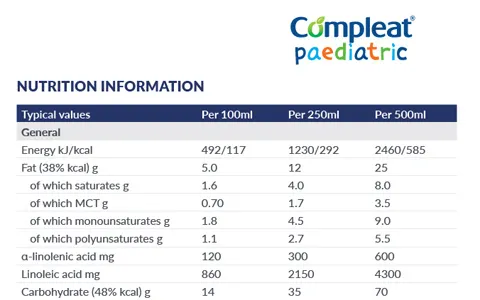Welcome to NConnect!
Nestlé Health Connect is a free resource for ANZ Healthcare Professionals.
Access a wealth of educational materials and product resources in key medical nutrition areas, including Cows' Milk Allergy, Dysphagia, Enteral Nutrition, Malnutrition, and Weight Management. You can also request samples of our products for your patients.
Products
Nestlé Health Science is your strategic partner in enhancing the quality of patient care through comprehensive nutritional solutions. Our range of solutions helps your patients whether their goal is to manage their disease, recover better and faster, or stay healthy.
See more
Highlights
Information for healthcare professionals to give to patients who use Nestlé Health Science products.
This Recipe book includes 19 recipes that have been developed and tested to meet specific textures for people who need thickened liquids and pureed solid foods. The recipes refer to THICKENUP® Clear. THICKENUP® Clear is a food for special medical purposes for the dietary management of people with swallowing difficulties. Must be used under medical supervision.
Dysphagia at the Festive Table: Festive menus for adults with swallowing difficulty or Dysphagia and for the whole family
EXTENSIVE HA™ is a specialised whey based, extensively hydrolysed infant formula (eHF), suitable for mild to moderate Cow’s Milk Protein Allergy (CMPA).EXTENSIVE HA™ is a special medical purpose product for infants, formulated for infants with Cow’s Milk Protein Allergy, for use only under medical supervision.
The Mini Nutritional Assessment (MNA®) is a validated screening tool to help identify individuals over the age of 65 who are malnourished or at risk of malnutrition to help determine nutritional status. This guide provides recommended nutrition interventions based on the patients' MNA® scores.
Watch our webinar as Dr. Graeme O'Connor Ph.D., RD, MBDA reviews the clinical evidence on the impact of an enteral formula with food-derived ingredients in children.
Purposefully designed with wholesome and familiar food ingredients to meet the nutritional needs of children requiring enteral nutrition.
Nutritionally complete paediatric tube feed with a unique blend of whole foods
Compleat® paediatric is a nutritionally complete 1.2kcal/ml standard enteral tube feed, containing food-derived ingredients (rehydrated chicken meat and vegetables, peach puree, orange juice from concentrate). Compleat® paediatric is a Food for Special Medical Purposes for use under medical supervision.
In this webinar, Professor Yvan Vandenplas will provide an in depth explanation of the CoMiSS® tool and its practical application for infants in the primary care setting to help increase awareness of the most common symptoms of CMA that can aid an earlier diagnosis.









